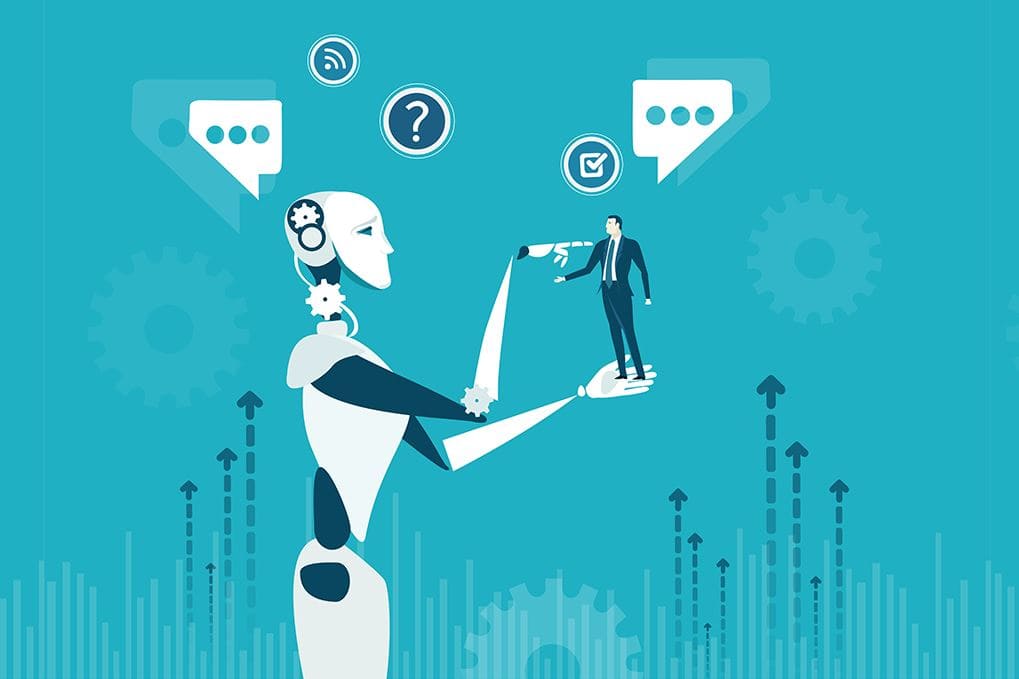Introduction
Ethics strives to create a sense of what is wrong and right. In this respect, moral judgments aid people in making decisions that have a positive impact while steering individuals away from actions that result in unjust outcomes. On the other hand, artificial intelligence (AI) depicts the use of machines in performing tasks linked with human intellect. Ethics plays the role of preventing bias, guarding people’s privacy, and protecting the environment in AI.
Ethics Prevents Bias in AI
Ethics in AI plays a crucial role in tackling any bias associated with using machines to accomplish chores. AI bias is evident in various industries, including banks, where it was discovered that decisions involving loans were biased, although no bigotry had been programmed in the system.1 This scenario justifies that AI bias is prevalent to a great extent, even with measures in place to curb its predominance. Bias information impact organizations negatively, considering it sways decision-making. Besides, bias in AI contributes to the existence of information that does not represent a particular population. In this context, AI is programmed by humans, and a lack of guiding principles might influence them to program machines in a manner that favors a particular population. Hence, ethics in AI aid in curbing behavior that promote bias.
1. P. S, Varsha, “How Can We Manage Biases in Artificial Intelligence Systems–A Systematic Literature Review.” International Journal of Information Management Data Insights 3, no. 1 (2023): 1, https://doi.org/10.1016/j.jjimei.2023.100165.

Ethics Guards Privacy in AI
The role of ethics in AI is enhancing privacy due to machines’ capability to collect and process such data. Using AI among companies to utilize customers’ information for personalized services has resulted in ethical discussions between technology and privacy.2 In particular, AI systems depend on information from online purchases, social media, and internet searches. Organizations utilize data from AI to personalize the customer experience, raising questions about consent to use personal information. Therefore, the technology amplifies the capability of using personal information in a manner that interferes with privacy interests. As a result, ethics aids in curbing potential challenges associated with the violation of privacy. Ethics in AI regulates organizations’ powers to utilize personal information without people’s consent for their benefit.
2. David Elliott and Eldon Soifer, “AI Technologies, Privacy, and Security.” Frontiers in Artificial Intelligence 5 (2022): 2, https://doi.org/10.3389/frai.2022.826737.
AI Ethics Protects Environment
Besides, the function of ethics in AI is controlling environmental risks. For instance, AI is projected to contribute to climate change substantially.3 In this case, technological models require a lot of energy to run. The energy utilized in training and operating AI contributes to environmental degradation resulting in climate change. Global warming, characterized by increased global temperature and rising sea levels, appeared due to climate change. Subsequently, climate change negatively impacts human health and increases the risks of floods and droughts due to AI. In turn, ethics aids in controlling emissions from AI manufacturing firms, protecting people from the negative impacts of climate change. A lack of ethics in AI would influence organizations to have less concern for the environment.
3. Anders Nordgren, “Artificial Intelligence and Climate Change: Ethical Issues.” Journal of Information, Communication and Ethics in Society 21, no. 1 (2022): 3, https://doi.org/10.1108/JICES-11-2021-0106.
Receive a high-quality paper without plagiarism from Wr1ter Team.
Conclusion
Ethics in AI plays the role of protecting the environment and privacy and avoiding bias. Machines are encoded to produce desired results, and a lack of ethics would result in their manipulation and biased outcomes. Ethics safeguards privacy in an era that relies heavily on technology. Furthermore, ethics regulates firms’ manufacturing and AI mitigation measures to protect the environment from emissions.
Bibliography
Elliott, David, and Eldon Soifer. “AI Technologies, Privacy, and Security.” Frontiers in Artificial Intelligence 5 (2022): 1-8. https://doi.org/10.3389/frai.2022.826737.
Nordgren, Anders. “Artificial Intelligence and Climate Change: Ethical Issues.” Journal of Information, Communication and Ethics in Society 21, no. 1 (2022): 1-15. https://doi.org/10.1108/JICES-11-2021-0106.
Varsha, P. S. “How Can We Manage Biases in Artificial Intelligence Systems–A Systematic Literature Review.” International Journal of Information Management Data Insights 3, no. 1 (2023): 1-9. https://doi.org/10.1016/j.jjimei.2023.100165.


